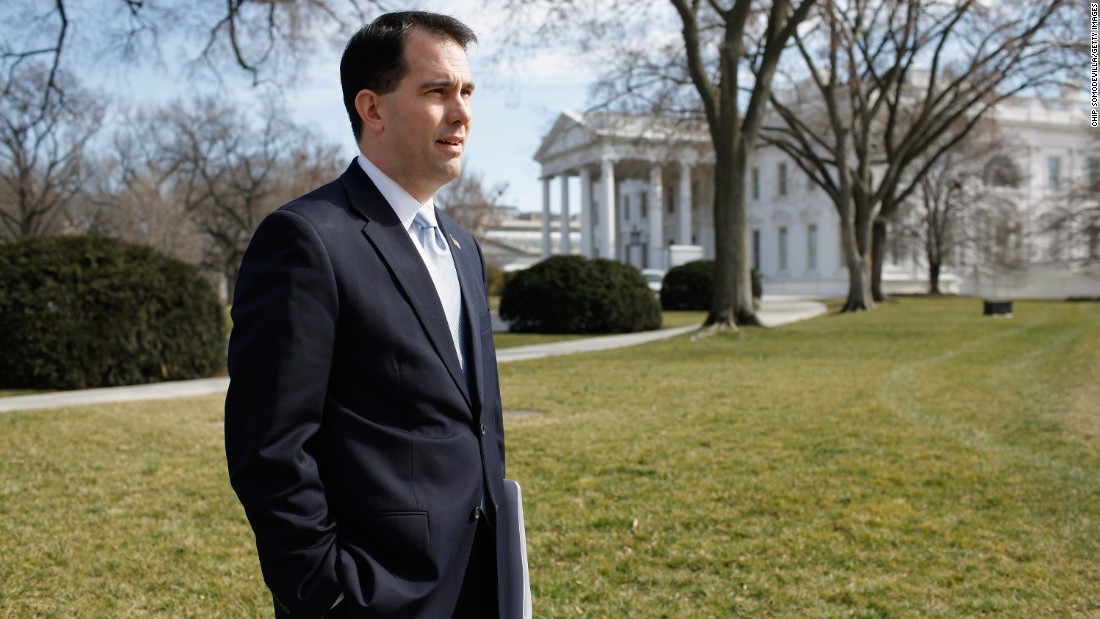Scott Walker hasn’t even formally announced he is running yet, but he is already a formidable presidential candidate. It’s early, but he has eclipsed Jeb Bush in the polls as the Republican frontrunner.
It hasn’t been entirely smooth sailing though. Walker has made several eyebrow-raising remarks, seeming to compare ISIS terrorists with union activists and calling Ronald Reagan’s 1981 decision to fire the air traffic controllers “the most significant foreign policy decision of my lifetime.”
Walker’s perceived weakness on foreign policy is a growing source of concern among members of the GOP establishment. A Friday story in The Washington Post by Robert Costa and Phillip Rucker described the skepticism with which a number of conservative foreign policy specialists regard Walker and the efforts he is taking to get up to speed (emphasis mine):
In contrast to the compelling and confident way Walker talks about his Wisconsin record, he has been shaky on foreign policy. He has traveled only rarely overseas and showed little interest in world politics in college or as governor. Policy experts and donors who have met with him privately said he lacks depth of knowledge about the international scene and speaks mostly in generalities. At a Club for Growth meeting last weekend, one major donor publicly portrayed Walker as “not prepared” to talk about global issues.
[...]
For Walker, the stakes are high. Potential donors are watching to see whether he gets up to speed.
It’s a pivotal moment for him. Though the actual nomination contests are still ten months away, disfavor among those who fund campaigns threatens his prospects.
It’s important to note here that voters don’t particularly care about foreign policy. The most recent Gallup poll asking Americans what they felt was the most important problem facing the country showed that that economic and other domestic issues significantly outpaced concerns about foreign policy and national security. This is true even after the recent ISIS beheadings of American citizens. Unless the U.S. is committing a substantial number of troops to a war, like in Vietnam or Iraq, the issue doesn’t typically move American voters.
Candidates and campaigns know this. The third presidential debate in 2012, ostensibly about foreign policy, provided vivid illustration of this. Both candidates began arguing midway through about domestic economic policy against the audible wishes of moderator Bob Schieffer.
Rank-and-file votes only play a limited role in the invisible primary however. Before the formal campaigning begins in Iowa and New Hampshire, candidates are primarily focused on raising money and attracting the support of influential party members in government and organization.
Republican campaign donors do care about foreign policy. And they want a nominee in 2016 who can “re-assert aggressive U.S. global leadership” and clearly articulate why.
To be clear, Walker’s foreign policy comments are indeed troubling. Comparing ISIS to public sector unions is…I mean, come on. He won't be getting my vote for a number of reasons.
But it’s not for me to decide whether this is disqualifying, and it shouldn’t be for “potential donors” to do so either. I have problems with many of their foreign policy goals too. They are substantively similar to Walker's, even if they manage to state them more elegantly.
But it’s not for me to decide whether this is disqualifying, and it shouldn’t be for “potential donors” to do so either. I have problems with many of their foreign policy goals too. They are substantively similar to Walker's, even if they manage to state them more elegantly.
Rank-and-file Republican primary voters should get to decide for themselves who they want to be their nominee. It’s offensive to any real notion of democracy that winning the approval of millionaires and billionaires is the necessary first step for 2016 presidential candidates.
But as headline after headline is showing, that’s exactly what’s going on. If Walker can’t adjust his rhetoric to adapt, he’ll be in real trouble.

No comments:
Post a Comment